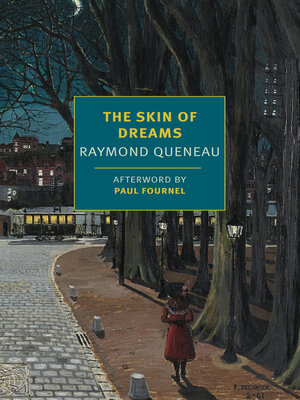
Sign up to save your library
With an OverDrive account, you can save your favorite libraries for at-a-glance information about availability. Find out more about OverDrive accounts.
Find this title in Libby, the library reading app by OverDrive.



Search for a digital library with this title
Title found at these libraries:
| Library Name | Distance |
|---|---|
| Loading... |
In this delightful, cinema-inspired daydream of a novel, an identity-shifting protagonist uses the everyday inspirations of his life to catapult himself into the realm of imagination, blurring the boundaries between reality and fantasy.
The Skin of Dreams is a novel of waking dreams. Even as he lives his life, Jacques L’Aumône, its hero, daydreams a hundred other possible lives. A few lines on a page, a chance encounter, a remark overheard in passing, any of these are enough to kick things into gear and send him off outside of himself to become a boxer, a general, a bishop, or a lord. He lives alongside his life with diligence and steadfastness; and the passage from real to dream is so natural for him that he no longer knows precisely which him he is. Eventually he becomes an actor in Hollywood, and the basis of countless dreams for others. This Jacques L’Aumône, like the characters who surround him, has the same sort of haunting and fluid consistency as someone that we might dream of in our beds at night. And reverie, here, is born through the tale’s humor, which is as gentle as it is cruel, as well as by way of a writing technique that is itself drawn from one of Queneau’s great loves, the cinema.
The Skin of Dreams is a novel of waking dreams. Even as he lives his life, Jacques L’Aumône, its hero, daydreams a hundred other possible lives. A few lines on a page, a chance encounter, a remark overheard in passing, any of these are enough to kick things into gear and send him off outside of himself to become a boxer, a general, a bishop, or a lord. He lives alongside his life with diligence and steadfastness; and the passage from real to dream is so natural for him that he no longer knows precisely which him he is. Eventually he becomes an actor in Hollywood, and the basis of countless dreams for others. This Jacques L’Aumône, like the characters who surround him, has the same sort of haunting and fluid consistency as someone that we might dream of in our beds at night. And reverie, here, is born through the tale’s humor, which is as gentle as it is cruel, as well as by way of a writing technique that is itself drawn from one of Queneau’s great loves, the cinema.







